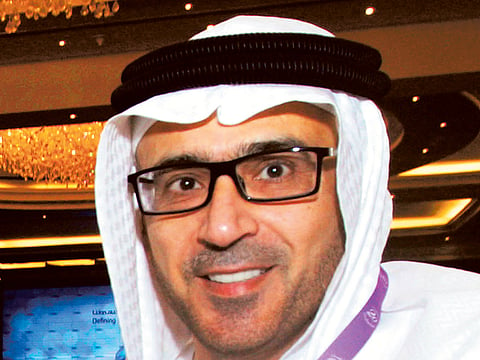‘Reason’ needed to counter extremists: experts
New Emirati book, The Mirage, provides platform for discussion at ECSSR in Abu Dhabi

Abu Dhabi: Muslims must strive to return to reason and apply true Islam to counter fringe fanatics’ attempts to hijack religion for violent ends, experts said at a discussion on religious extremism in the capital on Tuesday.
Extremist groups are exploiting religion for their own interests and power to draw vulnerable people into their agenda, said leading political experts and scholars.
The discussion was centred around the themes of a major Emirati-based publication, The Mirage, by Jamal Sana Al Suwaidi, Director-General of the Emirates Strategic Centre For Strategic Studies and Research (ECSSR).
Al-Suwaiid’s 700-page book touches upon a number of points, arguing that extremists are using religion to come into positions of power, and using religion to cause division among groups of people. The book also mentions how extremists have a narrowed interpretation of the Islamic religion, not allowing for differences of opinion, threatening and carrying out acts of violence against anyone who disagrees with them, Muslims included.
Other points raised by Al Suwaidi’s book is that a blind eye was turned to extremist groups during their early stages and formation and, as a consequence, this has led to major violence and bloodshed, he adds.
In his opening remarks during the discussion, Al Suwaidi said, his “aim [in writing] The Mirage was to produce a comprehensive scholarly study covering a number of political-religious groups, blending theoretical and empirical methods. The book adopts a strict scholarly approach in the presentation of its hypotheses and conclusions … I hope The Mirage will inspire further scholarship on the phenomenon of political Islam, as recent facts and events have caused researchers to reconsider much of what is understood regarding this phenomenon in terms of its past, present and future,” he said in his opening remarks at the discussion.
Shaikh Waseem Yousuf, an Islamic scholar and Imam of the Shaikh Zayed Grand Mosque in Abu Dhabi, spoke about the danger of extremist groups like Daesh targeting vulnerable youth to try and attract them towards their cause, saying. “I was in the US and three students joined Daesh. These three students were all drug addicts, so the extremists target these vulnerable people, and tell them that they are astray, and that they [Daesh] can purify and help them if they join their jihadist group.”
Shaikh Yousuf also mentioned the major practice of excommunication (takfir) practised by extremists towards other Muslims, declaring Muslims to be outside the fold of Islam if they fail to act in complete accordance with Islamic principles.
“They think everyone who is not a very pious Muslim is not a Muslim, I can make some mistakes and errors but it doesn’t mean I am an enemy of the religion. If I am disobedient it doesn’t mean I am against the Prophet or I am an enemy of Islam, but this is the generalisation extremists follow.”
According to Shaikh Yousuf, preachers behind extremist and jihadist thought in the Arab and Islamic world should also be exposed and publicly refuted, as once the reality behind these groups is uncovered people will not be swayed into joining them.
Dr Abdul Haq Azzouzi, Professor of International Relations and Political Science, from Morocco, praised the publication of The Mirage and its in-depth research, saying it was very important for the Arab world to have political advisers and research studies to help leaders formulate plans and policies in tackling extremists, much like in the West.
“Every president in the United States is surrounded by political advisers; in the Arab world we don’t give priority to such studies [political research and strategy], but depending on such studies can make future society brighter. If a decision-maker can find such studies he or she will be able to crystallise efficient policies. Strategic studies aim to create paradigms and intellect that enable the nation to overcome challenges and influence decisions made by politicians leading the country.”
Dr Azzouzi said that it was imperative for Arab countries to create and sustain growth and development in their societies for the benefit of its citizens, as this would prevent extremists from being able to target and recruit people.



